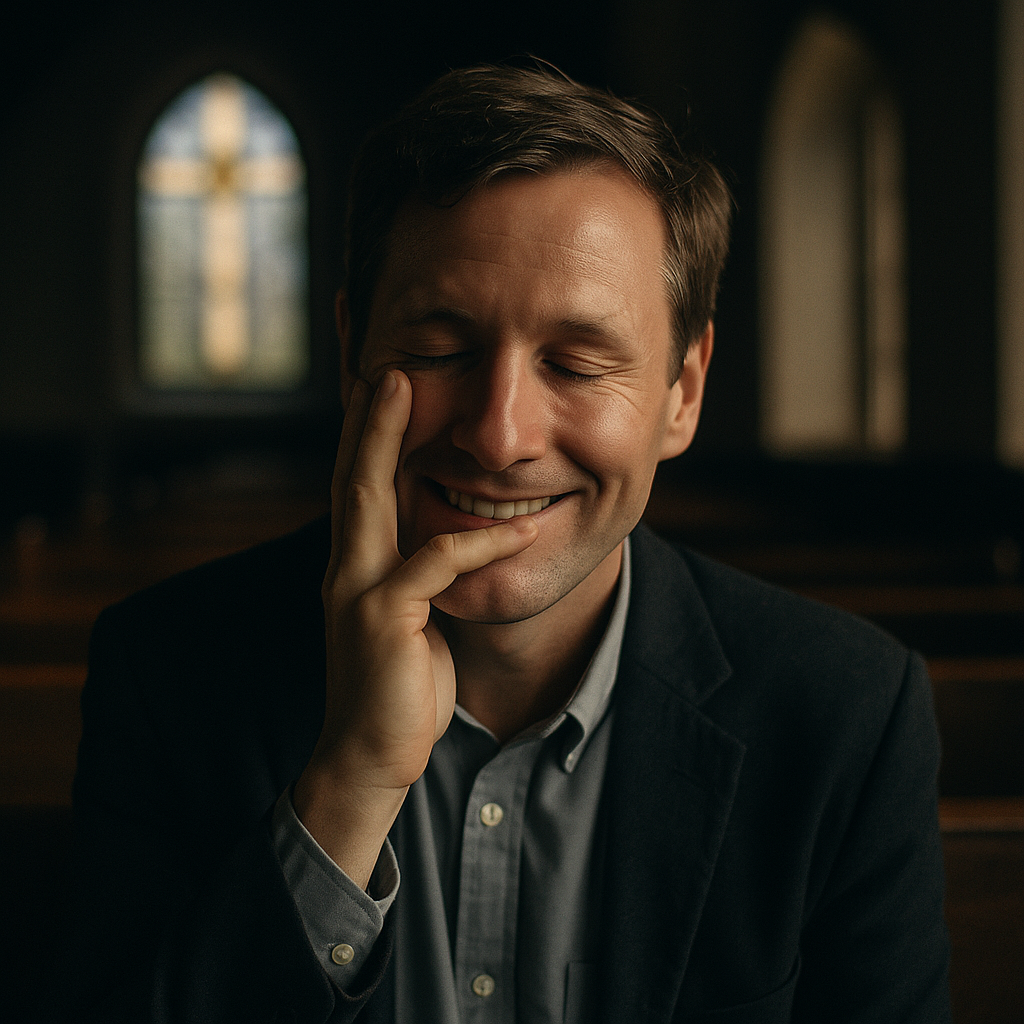
There are few prisons quieter than the one built inside a person who looks holy on the outside but is dying inside.
The worship leader who never misses a Sunday.
The mother who posts verses every morning.
The man who speaks of grace but cannot feel it anymore.
They smile, lift their hands, and nod at all the right moments — yet beneath the surface, something groans.
The Hidden Weight of Appearances
For many, the act of looking righteous becomes a survival mechanism.
It’s easier to polish the surface than to face the shadows beneath it.
The more fragmented the soul becomes, the brighter the performance must be.
Jesus once said to the Pharisees:
“You are like whitewashed tombs, which look beautiful on the outside but on the inside are full of bones and everything unclean.” — Matthew 23:27
That verse isn’t meant to shame; it’s meant to reveal compassion.
Christ saw their exhaustion — the endless scrubbing of a mask that never satisfied.
How the Soul Begins to Fracture
Hidden sin or spiritual deception rarely begins loud.
It starts as a whisper: You’re fine. Everyone struggles. Keep serving. Keep smiling.
Over time, that whisper becomes a wall.
When confession is silenced, the body begins to carry what the heart cannot speak.
Insomnia. Irritability. Anxiety that feels holy because it hides behind perfectionism.
A restless ache that no amount of service or success can quiet.
David wrote in Psalm 32:3–4,
“When I kept silent, my bones wasted away through my groaning all day long.”
Unspoken truth always finds another way to speak — through fatigue, conflict, or despair.
Why We Hide
- Shame — We fear exposure more than death.
- Pride — We believe our image is what keeps God’s favor intact.
- Fear of Rejection — We have confused the love of people with the love of God.
So we polish the image. We post the verse. We lead the small group.
We say, “I’m fine, just tired.”
But secretly, we wonder if God even knows us anymore — or if He only loves the version we perform.
The Double Life of Spiritual Suffering
Many who live in hidden torment are not evil; they are simply exhausted.
They’ve built a faith on doing rather than being.
They’ve confused conviction with condemnation, discipline with shame, and God’s patience with His absence.
In churches, these souls are often the hardest to spot.
They serve tirelessly, pray eloquently, and counsel others — all while slowly fading inside.
But the fruit betrays the roots.
You see it in the irritability that follows worship,
in the criticism hidden behind “concern,”
in the need to control every conversation, every perception, every ounce of approval.
This is not joy — it’s bondage wrapped in ministry.
God’s Kindness in Exposure
When God exposes what’s hidden, it feels cruel at first — like a spotlight on shame.
But exposure is mercy.
It is surgery for the soul.
The same fire that reveals also refines.
When David was finally confronted by Nathan, he collapsed into repentance, crying,
“Let the bones You have crushed rejoice.” — Psalm 51:8
Repentance was not punishment; it was oxygen.
The pain of being found became the first breath of freedom.
The Private Hell vs. the Hidden Heaven
There are two invisible worlds inside every believer:
- The Private Hell: where guilt, secrecy, and pride reign — the soul separated from peace.
- The Hidden Heaven: where humility cracks the surface and light enters.
The transition between them often looks like collapse — loss of reputation, the end of pretending, the breaking of control.
But that collapse is sacred.
It’s the unmaking that precedes resurrection.
The Cost of Continuing the Act
To maintain the holy smile while the heart is rotting is to live in quiet torment.
It’s the slow death of authenticity.
Each lie told to oneself adds another layer of distance from grace.
Eventually, the smile becomes heavy.
It takes more effort to maintain than to repent.
This is how spiritual suffering deepens — not through God’s wrath, but through resistance to mercy.
The Invitation to Come Clean
When confession finally happens — when the words we fear most finally leave our mouths — something miraculous occurs:
shame loses its language.
The enemy’s power is in secrecy, not sin.
God’s mercy already accounted for the failure; He’s simply waiting for us to drop the act.
“If we confess our sins, He is faithful and just to forgive us and to cleanse us from all unrighteousness.” — 1 John 1:9
The voice that once said “Hide or die” transforms into “Confess and live.”
How This Speaks to Us Today
Many believers are deconstructing faith not because they hate God,
but because they’re suffocating under the weight of false perfection.
They’re longing for a faith that breathes.
That’s why telling these stories matters — because they break the illusion that holiness means never struggling.
True holiness is humility — the courage to bring darkness into light.
Closing Reflection
If you feel the ache beneath the smile —
if you serve and still feel unseen,
if you speak about grace but can’t feel it yourself —
this is not the end of your faith.
It’s the beginning of it.
Because the moment the mask cracks, mercy rushes in.
And what once felt like judgment reveals itself as rescue.
🕊️ Scripture References
- Matthew 23:27
- Psalm 32:3–5
- Psalm 51
- 1 John 1:8–9
- Hebrews 12:6